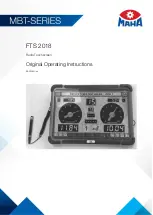
ECG
Alarm message
Arrhythmia analysis
Alarm priority default
Arrhythmia detection
criteria
Tachy
Full
TRAM or combination
monitoring only.
According to priority
setting
Occurs when four
consecutive RR intervals
or the displayed 4/8-beat
average ECG heart
rate exceeds the
user-selected common
HR high limit or ECG HR
high limit.
Trigeminy
Full
According to priority
setting
Every third beat is PVC (N,
N, V, N, N, V, N, N, V).
V Brady
Full
According to priority
setting
Run of PVCs are detected
with a run length of at
least three beats. In
addition, at least two
consecutive RR intervals
in the run must have an
effective heart rate less
than 50 bpm (OR, PACU,
ICU, ED) or 60 bpm (NICU).
V Fib/V Tach
Lethal
High
ECG waveform indicates
a chaotic ventricular
rhythm.
V Tach
Lethal
According to priority
setting.
Always High if V Tach
duration >30 seconds,
and HR >180 bpm in
NICU or >150 bmp in
other software packages,
and HR is over the user
adjusted HR high limit.
OR, PACU, ICU, and ED
software packages: A run
of PVCs is detected with
a run length of six beats
or more and the effective
HR exceeds 100 bpm.
NICU software package:
A run of PVCs is detected
with a run length of six
beats or more and the
effective HR exceeds 160
bpm.
VT>2
Full
According to priority
setting
A run of PVCs is detected
with a run length of more
than two beats but less
than the six beats. In
addition at least two
consecutive RR intervals
in the run must have an
effective HR that exceeds
100 bpm.
About the arrhythmia detection
When an ECG signal is detected at the start of monitoring, the arrhythmia detection
algorithm begins acquiring and analyzing QRS complexes in the leads used for
arrhythmia detection. This phase is known as learning. Once learning is complete, the
dominant QRS complex is stored as a reference template. Reference template is used
as a normal morphology of that patient and it is compared with incoming beats to
identify possible arrhythmias.
180
CARESCAPE Modular Monitors
2062971-001
Summary of Contents for CARESCAPE
Page 38: ...38 CARESCAPE Modular Monitors 2062971 001 ...
Page 114: ...Setting up the monitor before use 114 CARESCAPE Modular Monitors 2062971 001 ...
Page 146: ...Alarms 146 CARESCAPE Modular Monitors 2062971 001 ...
Page 218: ...Pulse oximetry 218 CARESCAPE Modular Monitors 2062971 001 ...
Page 234: ...Non invasive blood pressure 234 CARESCAPE Modular Monitors 2062971 001 ...
Page 260: ...Temperature 260 CARESCAPE Modular Monitors 2062971 001 ...
Page 274: ...Cardiac output 274 CARESCAPE Modular Monitors 2062971 001 ...
Page 280: ...Mixed venous oxygen saturation SvO 280 CARESCAPE Modular Monitors 2062971 001 ...
Page 338: ...Patient Spirometry 338 CARESCAPE Modular Monitors 2062971 001 ...
Page 372: ...Neuromuscular transmission 372 CARESCAPE Modular Monitors 2062971 001 ...
Page 404: ...Laboratory data 404 CARESCAPE Modular Monitors 2062971 001 ...
Page 410: ...Calculations 410 CARESCAPE Modular Monitors 2062971 001 ...
Page 416: ...Drug calculations 416 CARESCAPE Modular Monitors 2062971 001 ...
Page 424: ...Trends 424 CARESCAPE Modular Monitors 2062971 001 ...
Page 432: ...Snapshots and events 432 CARESCAPE Modular Monitors 2062971 001 ...
Page 462: ...Cleaning and care 462 CARESCAPE Modular Monitors 2062971 001 ...
Page 528: ...Abbreviations yr year yrs years 528 CARESCAPE Modular Monitors 2062971 001 ...
Page 546: ...Skills checklist 546 CARESCAPE Modular Monitors 2062971 001 ...
Page 547: ...content ...
















































